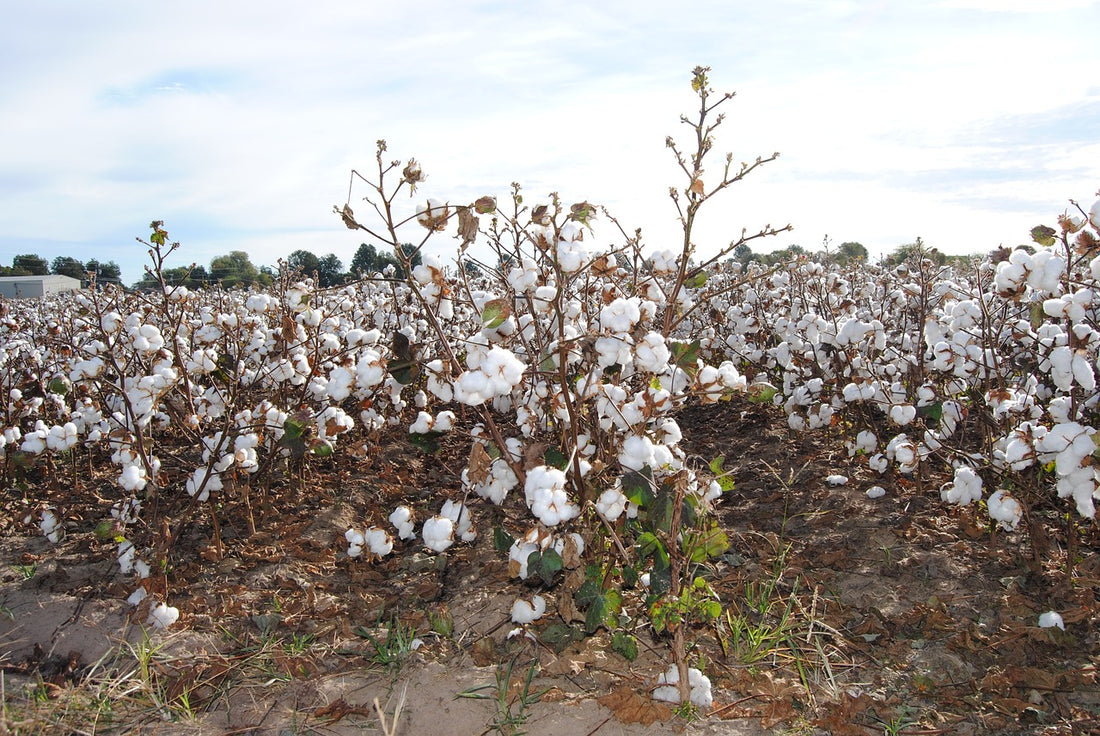Everything has an origin, and many of us do not realize that fashion is not an exception to this rule, the life of all fashion garments first started on our soil.Like many other crops cultivated by farmers, cotton crops are heavily treated with hazardous chemicals meant to keep the crop “safe” from bacteria and insects by killing all the biodiversity of the soil.
Of course, how can your crop be attacked by insects or diseases when you’re killing every shred of life on a microscopic level? This goes unnoticed, and the awareness about this issue seems to be very low.
As for now, our societies have only been following trends. We seem to be more interested in buying what our favorite artist is wearing than making a conscious decision for ourselves about what is best for us, and the environment.
Organic cotton > synthetic weaves.
“Sadhguru: Nowadays, there is a lot of talk about wearing clothing made from organically produced cotton. But human beings have always been doing that. Everything was organic. Even now, in a country like India, it largely is. Organic clothing or organic farming is not some special idea. That is the way it has always been done. It is only in the last few decades that we have given that up because someone changed it for commercial interests. I am not trying to prescribe what someone should wear, but you should look at your life with a certain freedom, without compulsions, and decide.”
Conventional cotton is notorious for being one of the world’s most chemically intensive crops. In fact, it qualifies as the third-largest user of pesticides in the United States
Organic farming works in harmony with nature. Farmers make the most out of nature and its cycles to grow their crops, and it all starts in our soil. Only by looking after the microscopic world beneath us, farmers are capable of growing healthy and resilient crops.
Organic farming works in harmony with nature. Farmers make the most out of nature and its cycles to grow their crops, and it all starts in our soil. Only by looking after the microscopic world beneath us, farmers are capable of growing healthy and resilient crops.
organic agriculture nurtures our soils, thus leading to healthy harvests. And because toxic hazardous pesticides and artificial fertilizers are prohibited in organic agriculture practices, biodiversity proliferates.
Saving and protecting one of our most valuable resources: Water.
Organic farming creates healthy soils, which soak up the water and holds it for longer in times of drought. Remember that all rivers end up in the ocean. The use of hazardous pesticides and fertilizers are banned, so rivers, lakes, and drinking water are kept cleaner too.
Empowering farmers.
Genetically modified (GM) seeds are banned in organic farming, so farmers are not reliant on a handful of companies. Instead, they save their seeds by applying Darwin’s theory of evolution and natural selection.
SLOW & CONSCIOUS FASHION
It is time more people choose quality over quantity in every sense. Only then can we can make a real tangible impact. The issue with this is that people often choose quantity over quality. There is not enough quantity of anything on this planet to satisfy an ever-hungry industry striving only for revenue, not real change.


